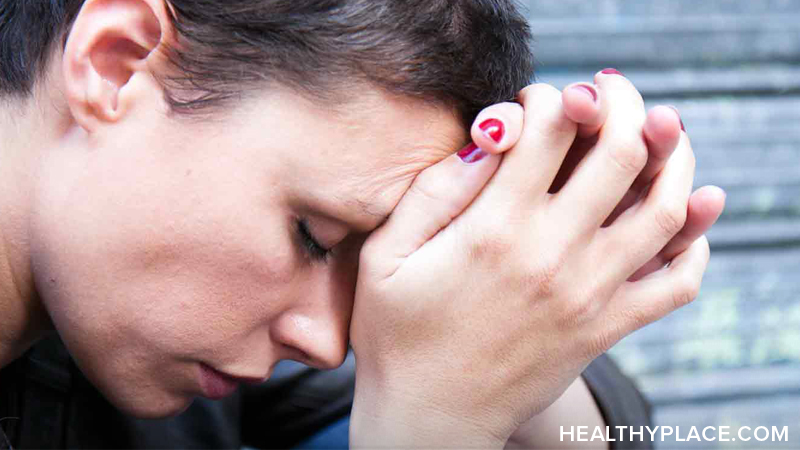How Can I Get the Most from My Bipolar Medications?

Getting the most from bipolar medications, how long you should keep taking them and when should you stop a medication for bipolar disorder.
Gold Standard for Treating Bipolar Disorder (part 9)
Dr. John Preston, the author of "The Idiot's Guide to Managing Your Moods" has the following suggestions for optimal medication use before you decide to stop or change a medication for bipolar disorder:
1. It's very important that you give your medications enough time to work. This can take much longer than you want it to, but it's often the case that some medications can take six weeks or longer to become effective.
2. Changing medications with the help of a prescribing healthcare professional can help you find something that works with fewer side-effects. There may be a host of new medications you haven't tried.
3. Augmenting a current medication can help significantly. For example, if your mood stabilizer is only partially working, adding one of the newer antipsychotics may provide more relief. Talk with your healthcare professional about your options.
4. Change the times you take your medications. If one causes drowsiness, take the drug before bed. If one is agitating or increases your energy, take it upon waking up.
5. Side-effects that lower sex drive, cause impotence or make a person unable to have an orgasm can often be eliminated by adding another drug or changing the medication. For some, depression itself lowers sex drive and certain medications can help restore it.
6. Instead of focusing solely on what the medication is not doing, instead look at your mood swing chart for a realistic picture of your mood swings as well as how you're relating to friends, family and co-workers. There is always a chance that you may think that your medications are not working, but they may be helping in areas you don't expect them to work. For example, you may be taking a mood stabilizer for depression that doesn't reduce the depression as you would like it to, so you go off the drug. You then start to have symptoms of anxiety, rapid-cycling, suicidal thoughts or focus problems that may be unrelated to depression. Improvement can be so gradual that you lose sight of how you were before the medication and stopping it can lead to some serious setbacks.
7. Many people say they have tried everything and yet if you look at their history very carefully, there is a chance the dose was not correct or that the person went off the medication too soon. Thus, it's very important that you talk with a healthcare professional and make a very careful evaluation of your medication type and dosage before you make a change or decide that medications will never work for you.
8. Side-effects can be sometimes be eased by using microdosing.
9. Treating bipolar disorder comprehensively can lead to reduced medications - which translates to fewer side-effects.
10. When it comes to medications, you have to ask yourself: "have I really explored all of my options?"
How Long Will I Have to Stay on Medications for Bipolar Disorder?
Many people with bipolar disorder will need to stay on maintenance medications for life. Of course, there is always the hope that medical research will improve this situation, but considering that mood swings are often triggered by outside events, medications are the best way for a person with bipolar disorder to maintain stability.
When Should I Stop a Medication for Bipolar Disorder?
There is little more frustrating or scary than taking a medication that either doesn't seem to work or one that has such serious side-effects that you feel the medication causes more problems than it helps. It can also be very frustrating when you express your concerns to a healthcare professional and they say, Let's just give this time to work; especially when you feel you can't take the medications for another day. This can often lead you to decide that you need to stop the medications on your own.
It's important to know that this can be very dangerous. Medications change your brain chemicals and affect the physical body. Your brain and body need time to adjust as the medicine is removed from your system. Going off a bipolar disorder medication too quickly and without supervision can result in suicidal thoughts, extreme bodily pain and a host of other symptoms. This is why you will have to talk with a healthcare professional to find out when and how to end the dose.
It can seem impossible to wait it out when a drug is making you iller than when you were off the drug, but you have to do things slowly in order to make sure you don't become even more ill as you stop using the bipolar medication.
What if I'm Feeling Better and Don't Really Need Medications for Bipolar?
Just because you're feeling better, it may not be time to stop your medication. The importance of maintenance medication for the treatment of bipolar disorder cannot be stressed enough. It's not unusual that people with bipolar disorder start to feel better on their medications and then feel that they are no longer needed. This thought then leads to the idea that things are currently better than they actually were in the past and that the mood swings were just a passing problem. This is rarely the case. If you were not doing well before taking medications and then suddenly feel better (and are sure it's not mania), there is a very good chance it's the effectiveness of the medications and not a spontaneous reduction in mood swings.
next: Are Bipolar Disorder Medications Safe If I'm Pregnant? (part 10)
APA Reference
Fast, J.
(2009, February 13). How Can I Get the Most from My Bipolar Medications?, HealthyPlace. Retrieved
on 2026, January 16 from https://www.healthyplace.com/bipolar-disorder/bipolar-treatment/optimizing-and-stopping-bipolar-medications-gsd








